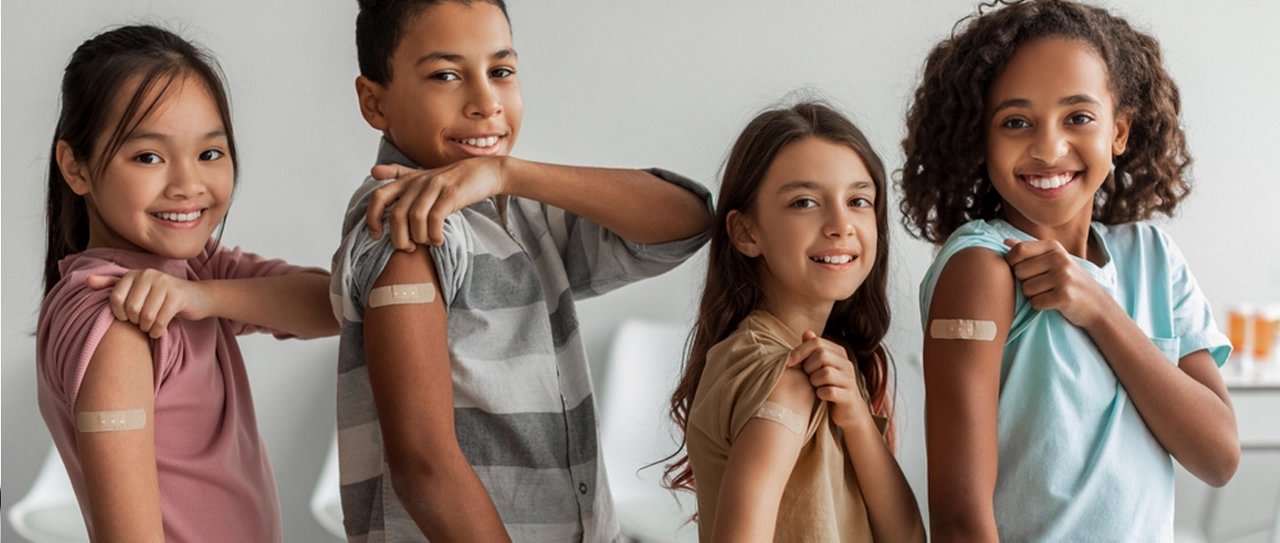Essential care for your pre-teen

It’s time to ensure your pre-teen is up to date on essential care.
Keeping your pre-teen current on recommended immunizations is one way to keep them healthy throughout the school year, flu season and beyond. Vaccines work best if your child gets them at the recommended age.
What vaccines are recommended at 11 to 12 years of age?
The Centers for Disease Control and Prevention (CDC) recommends 11- to 12-year-olds get vaccinated against the following diseases:
- Meningococcal disease
- Multiple strains of the Human Papillomavirus (HPV) that can lead to cancer
- Tetanus, diphtheria, and whooping cough (pertussis)
- Influenza (Flu)
- COVID-19
Why is it important for my child to receive these vaccines?
Getting your kids vaccinated reduces the risk of illness, which can keep your child from missing school and you from missing work. More importantly, vaccines reduce the risk of these conditions becoming serious and even deadly.
Meningococcal (one dose)
- Protects against the bacteria that cause meningococcal disease that can lead to bloodstream infections, infections of the brain and spinal cord, and long-term disabilities.
Whooping cough, or pertussis (one dose of Tdap vaccine)
- Protects your child from whooping cough, a potentially serious and even deadly disease, as well as tetanus and diphtheria. Prevents your child from having violent coughing fits from whooping cough.
HPV (two doses of vaccine 6 to 12 months apart)
- Protects against infections that can lead to certain cancers.
- Protects against abnormal cells that can lead to cancer (precancers) and the lasting effects of testing and treatment for these precancers.
Influenza (flu) (one dose of vaccine every year)
- Reduces the risk of flu illness and hospitalization among children.
- Shown to be life-saving for children.
- Can make illness less severe among people who get vaccinated but still get sick with the flu.
- Reduces the high risk of developing serious flu complications with certain chronic conditions.
- Helps prevent the spread of flu to family and friends, including babies younger than six months who are too young to get a flu vaccine.
COVID-19 (primary vaccine series and boosters – updated bivalent booster is now available for preteens)
- Reduces the risk of severe illness and hospitalization.
Are these vaccines safe?
Vaccinations are safe and effective. Like any medicine, vaccines can have side effects that are usually mild and go away on their own. Children have the best protection when they get all their shots on schedule.
Consult with your family doctor or health care provider to make sure your child is up to date on all the vaccines recommended for their age group and schedule a well child exam.
Recommended vaccines for children are covered at no additional cost to you under your Blue Cross and Blue Shield of North Carolina (Blue Cross NC) plan. At the time of this publication, Blue Cross NC also covers COVID-19 vaccines and boosters that are FDA approved, including for emergency use authorization (EUA), at no cost for all members.
Already had a back-to-school wellness visit or don’t have time to schedule an appointment with your pediatrician? No problem! Get your pre-teen immunizations at a local pharmacy.
Browse related articles


Blue Cross and Blue Shield of North Carolina does not discriminate on the basis of race, color, national origin, sex, age or disability in its health programs and activities. Learn more about our non-discrimination policy and no-cost services available to you.
Information in other languages: Español 中文 Tiếng Việt 한국어 Français العَرَبِيَّة Hmoob ру́сский Tagalog ગુજરાતી ភាសាខ្មែរ Deutsch हिन्दी ລາວ 日本語
© 2025 Blue Cross and Blue Shield of North Carolina. ®, SM Marks of the Blue Cross and Blue Shield Association, an association of independent Blue Cross and Blue Shield plans. All other marks and names are property of their respective owners. Blue Cross and Blue Shield of North Carolina is an independent licensee of the Blue Cross and Blue Shield Association.

